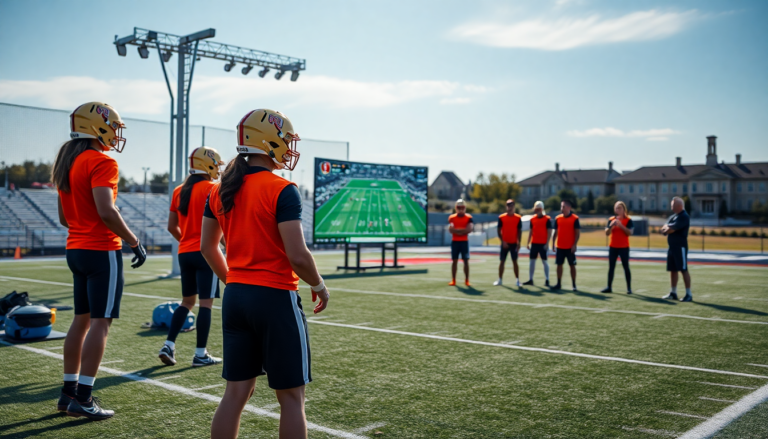Argomenti trattati
The journey of Casey Schwab and the rise of Pathway Sports
Casey Schwab’s professional path doesn’t immediately suggest a connection to gaming. A graduate of Wisconsin with a law degree from Southern California, Schwab has built a career that has spanned prominent organizations like the NFL Network and Fox, eventually taking the reins at the NFLPA. In 2020, he founded Altius Sports Partners, a venture that arose amid the evolving landscape of Name, Image, and Likeness (NIL) in college athletics. But how did a figure with such a background transition into the gaming world?
According to Schwab, the current climate in college athletics is marked by uncertainty regarding revenue sharing, employment status, and collective bargaining. However, when it comes to commercial opportunities for college football players in video games, the landscape is much clearer. This clarity motivated Schwab to establish his latest venture, Pathway Sports and Entertainment.
Pathway’s innovative business model
Pathway Sports operates on a straightforward premise: the company seeks to create a group licensing agreement for college football players, providing them with upfront payments of $1,500. The real value lies in the potential for these players to earn additional compensation when this group license is sold to a video game developer, such as Electronic Arts (EA). At that time, the players would receive at least 70% of the net royalties from the sales.
This approach has resonated with athletes, leading to Pathway successfully signing over 2,700 players from the Power Four conferences, encompassing nearly half of the scholarship athletes at that level. This impressive roster includes agreements with a significant majority of teams from schools like Alabama, Texas, Georgia, and more. Schwab’s vision is clear: to ensure players benefit from their involvement in the gaming ecosystem.
The landscape of college football video games
The market for college football video games has been relatively monopolistic, creating an opportunity for disruptors like Pathway. EA Sports recently relaunched its college football franchise with EA Sports College Football 25, signing over 11,000 athletes for this venture. While these agreements are primarily individual and nonexclusive, many athletes are also part of a group licensing deal managed by OneTeam, a company that oversees player payments and responsibilities related to the game.
Pathway’s strategy, while aggressive, hinges on the premise that by signing a substantial number of players, game developers will be compelled to purchase its group license to maintain a top-tier gaming experience. Without a significant representation of players from the Power Four, any major college football video game would struggle to achieve its maximum sales potential.
Challenges and opportunities in the industry
Schwab acknowledges that there have been obstacles along the way. Some stakeholders are confused or challenged by Pathway’s model, which is not surprising when attempting to innovate in a traditional space. However, the excitement surrounding the industry is palpable, especially after EA Sports announced the return of college football games, a much-anticipated event for fans.
While EA Sports College Football 25 has become a bestseller, generating significant revenue, questions regarding athlete compensation remain at the forefront. The initial onboarding for athletes included flat payments that did not reflect their market value or offer them a share in the game’s success. Pathway aims to address this gap, ensuring that athletes receive compensation that correlates with their contributions to the game.
The financial backing and future of Pathway
Pathway’s financial backing comes from Winners Alliance, an agency with extensive experience in managing group licensing in professional sports. The initial investment is substantial, with estimates suggesting that signing every scholarship player at the FBS level could exceed $17 million. Pathway is also working on an activation program to provide additional opportunities for athletes beyond their base payments.
As Pathway continues to grow, it plans to take a percentage of any deals made with game developers, creating a sustainable model. For instance, if a deal with EA were to result in substantial game sales, Pathway could generate significant revenue, with a considerable portion earmarked for the athletes involved.
Looking ahead: The evolving landscape of college sports
While Pathway’s focus is currently on college football, there is potential for expansion into other sports, including college basketball. As college athletics grapple with how to classify athletes and navigate collective bargaining, Pathway’s approach may provide a viable alternative. The rights of first refusal included in player agreements could create a unique negotiation dynamic in the future.
As the landscape of college sports continues to evolve, initiatives like Pathway Sports and Entertainment are critical in shaping how athletes are compensated and how the gaming industry intersects with athletics. Schwab and his team are not just laying the groundwork for a new business but are also advocating for the rights and earnings of college athletes in a rapidly changing environment.

